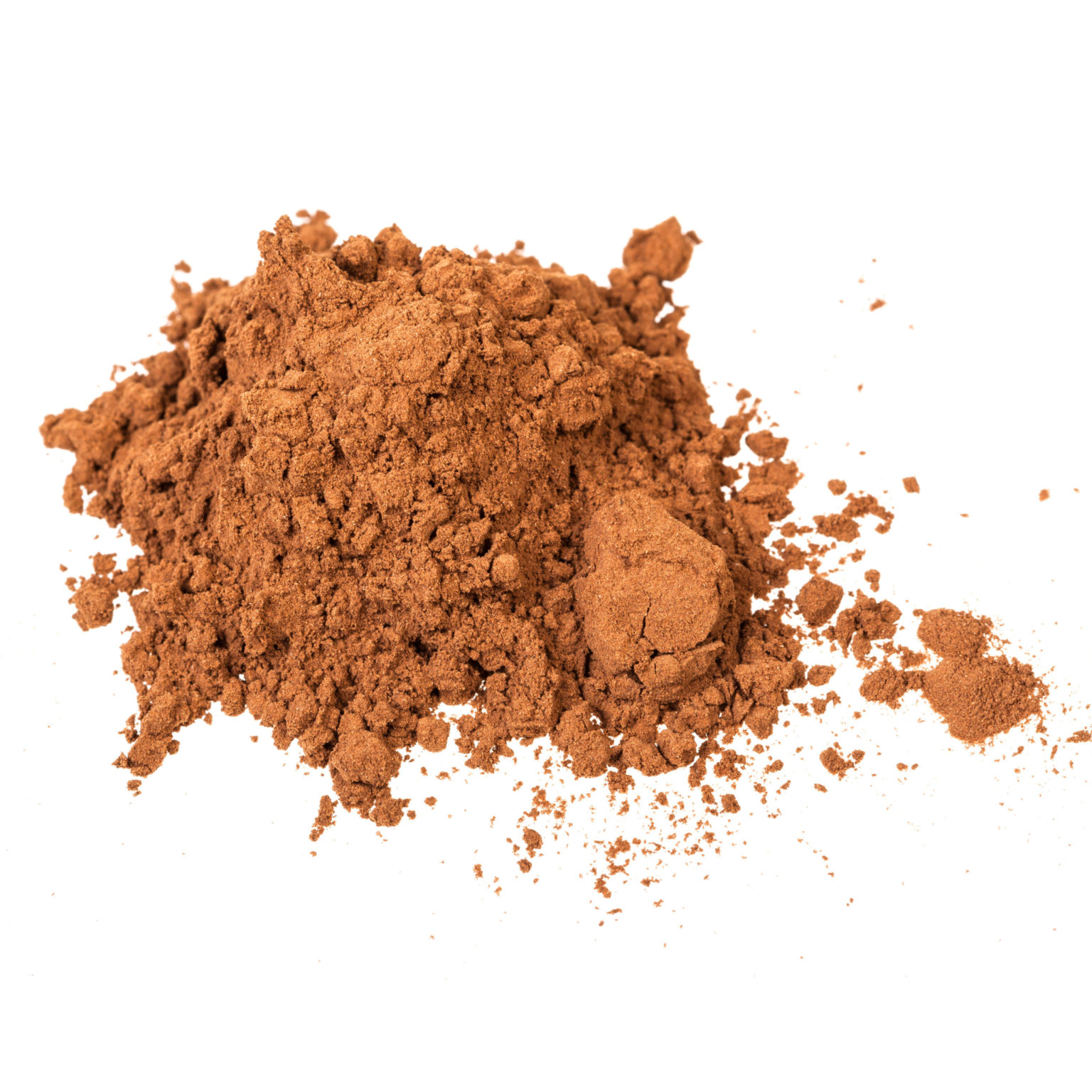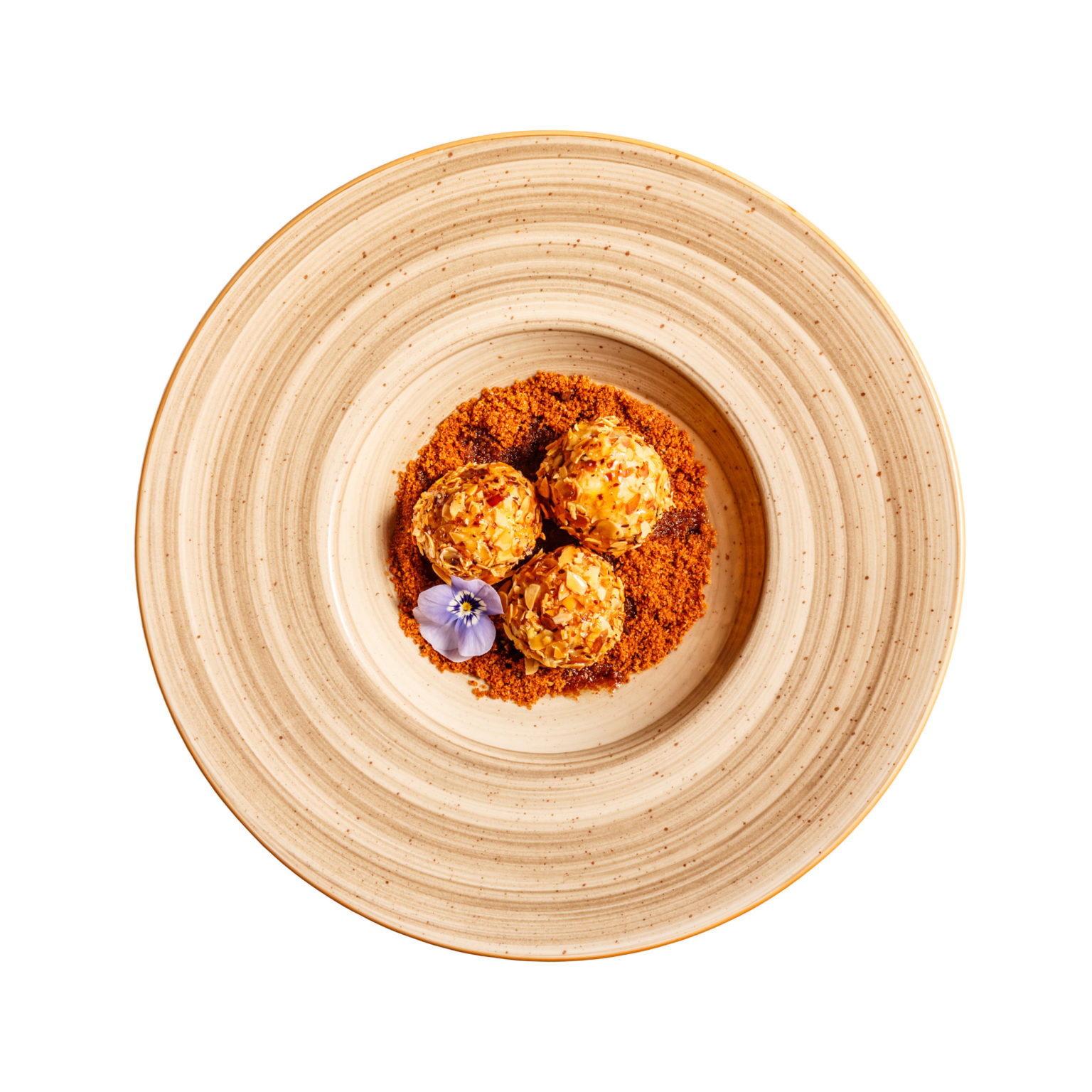Carob
The fruit of the carob tree can be divided into two edible products: either the carob pod, ground to produce a flour similar to cocoa, or the carob seeds found inside the pod, from which carob gum is made.
Carob flour
Carob powder is obtained by drying, roasting and grinding the pod after removing the seeds. It has become a perfect substitute for chocolate.
It can be used in cakes, cookies, drinks and confectionery. It can be used on its own or combined with cocoa or chocolate. For each part of cocoa, 1.5 to 2 parts by weight of carob can be substituted in most recipes. However, it’s best to add strong-flavored ingredients to enhance its taste, such as cinnamon or mint.
Naturally sweeter (40% glucose and saccharose) than cocoa, carob powder cuts the amount of sugar needed in our dishes by a factor of four. It also replaces wheat flour in some baby milks as a thickener, proving highly effective for infant regurgitation.
Carob gum
We consume carob without knowing it? It is found as an E410 additive, thickener and gelling agent in ice creams, yoghurts, pastries, drinks and health foods (no gluten in carob).
The seeds of the carob tree produce a gum used in the food industry in particular, but also in other industrial applications (paper industry, textiles, pharmaceuticals, cosmetics, etc.).
It acts as a thickener, and is a veritable ally for slimming diets, as it swells when mixed with water, creating an appetite-suppressant effect.
Using carob
Carob has been known to the inhabitants of the Mediterranean basin for thousands of years. They appreciated its sweet, floury flesh, and it was eaten as is, in flour or as a fermented drink.
It is still used as animal feed: in Portugal, breeders enrich their horses’ diet with carob.


Virtues
Particularly rich in calcium, vitamins, fiber, starch, antioxidants and protein, carob is a “superfood” that contains less fat than cocoa.
Contains no caffeine or gluten.
Anti-cholesterol
Antidiarrheal
Against memory disorders
Protection during gastroenteritis
Cough suppressant
Protection of intestinal walls against irritating substances.
Nutrient intake
Health tips
Intestinal irritation
General vomiting
Pregnancy-related vomiting
Steatorrhea (presence of large quantities of fat in stools)
Gastric acid
Toxicity and side effects: None
Carob, consumed at a rate of one seed per day, has a reputation for effectively combating hemorrhoids until they disappear for good.